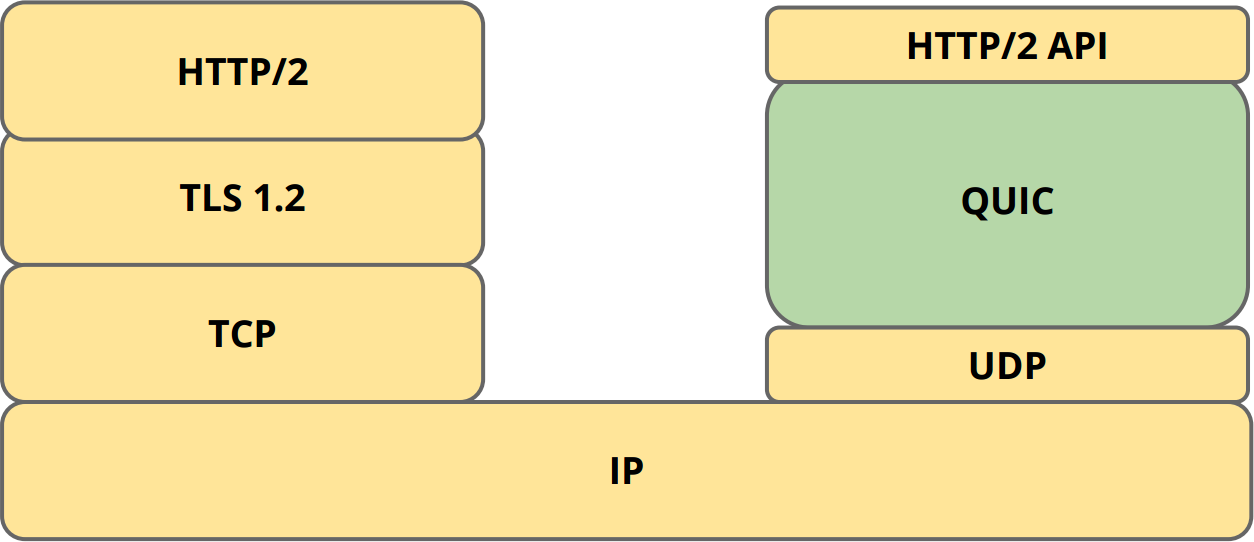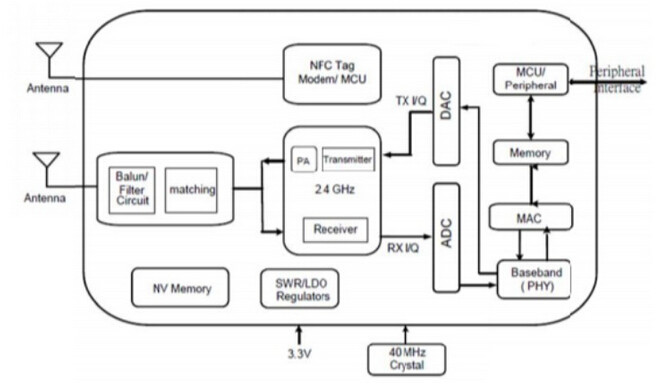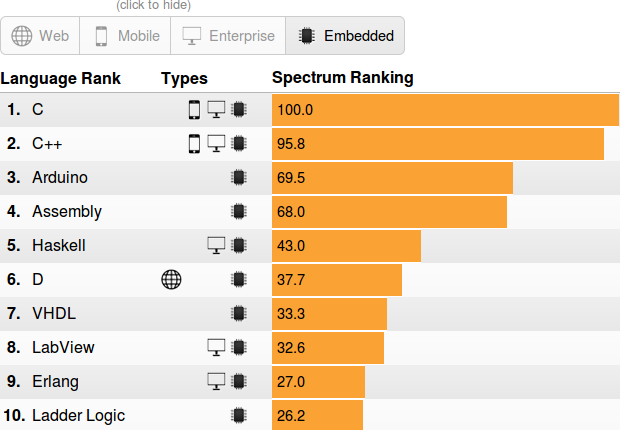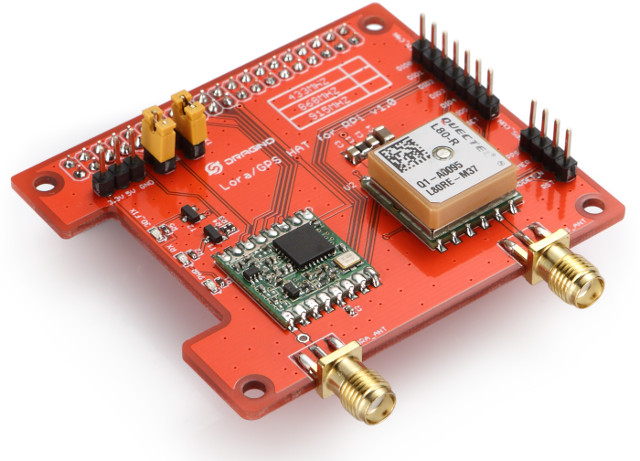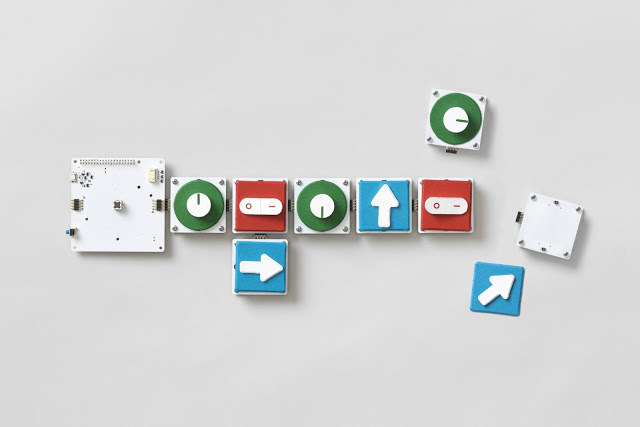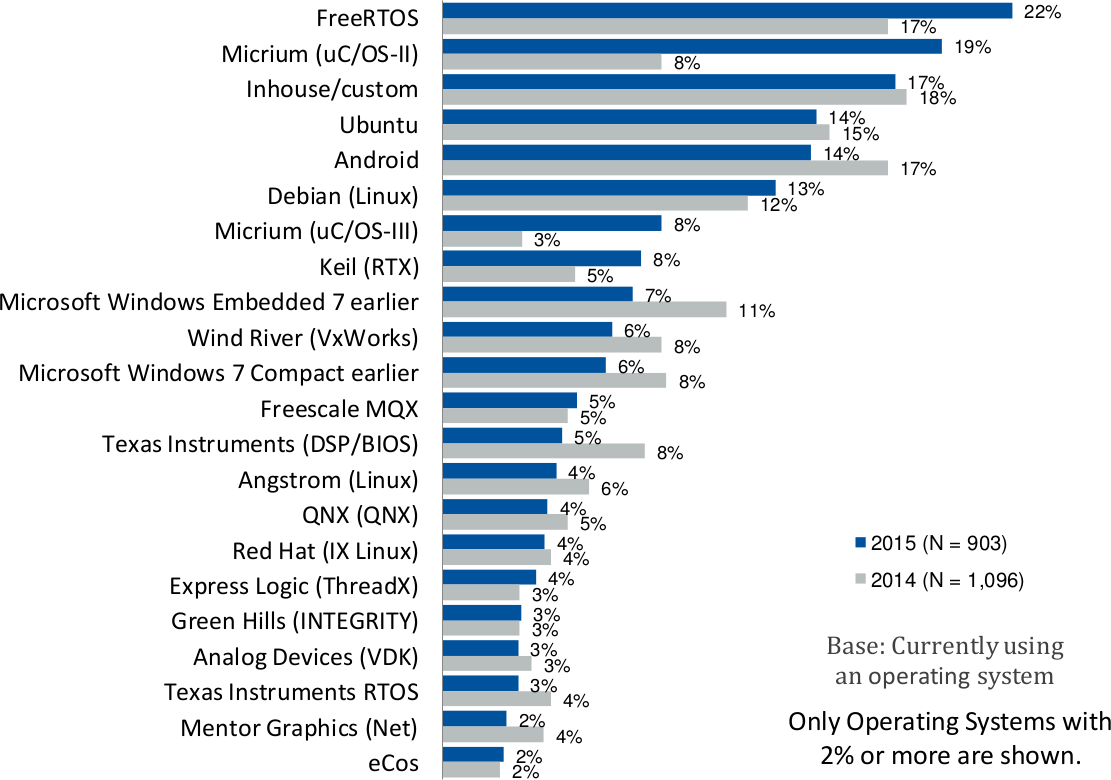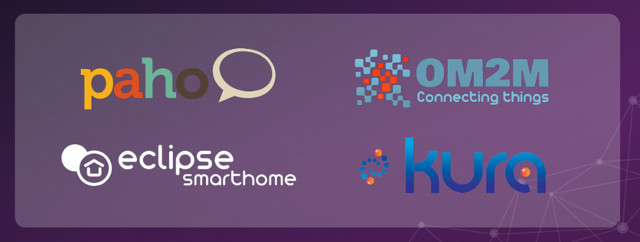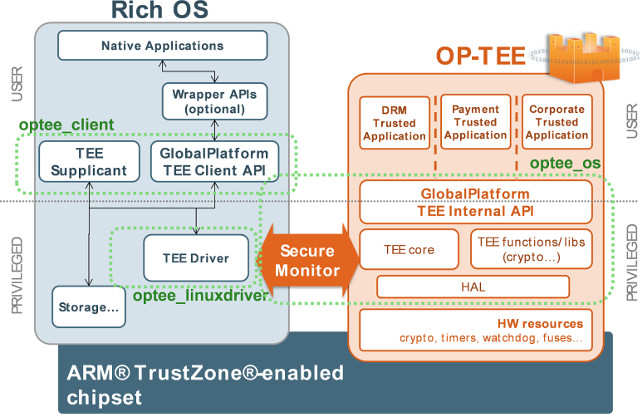A lot of traffic over the Internet goes through secure https connections. Under the hood this requires a 3-way handshake to establish a TCP connection, followed by even more packets exchanged between the client and server to negotiate TLS in order to establish a secure connection. Google is now working one the new experimental QUIC protocol that uses the “send and forget” UDP protocol, together with its own crypto, and its own way to making sure the connection is properly establish. The whole idea about QUIC is to reduce the effect of latency (e.g. ping time) by exchanging less messages to achieve the same secure connectivity. For example, if there’s a 200ms latency between a server and a client, and if a TCP connection requires 4 packets, while a QUIC/UDP connection requires only 1 packet, you’ll save about 600ms. One downside with UDP according to Jim Roskind, designer of QUIC, […]
Development Resources for Realtek “Ameba” RTL8710, RTL8711, and RTL8195 WiFi SoCs
We were made aware of a potential ARM based ESP8266 competitor last week with Realtek RTL8710 WiFi modules selling for about $3.5 shipped per unit, and under $2 per unit for larger orders (100+ pieces). Hardware is good, but for a platform to be successful, or even just useful, you also need software support. So I started doing some research into IoT-Tech BBS and asked ICStation for an “SDK” for the module they sold. I ended up on this forum post providing an “Realtek RTL8710 SDK” via Baidu (password: brwp), which turned out to be about the same as the Google Drive link provided by ICStation, and only contain minimal documents, as well as cracked Windows IAR Embedded Workshop and JLink tools. There are also some more technical details in Chinese only in another forum post, and well as B&T RTL8710 module datasheet (PDF). However, if you don’t read Chinese […]
Top 10 Programming Languages in 2016 for Embedded Software Development
IEEE Spectrum has published a list of the top programming languages in 2016 for Web, Mobile, Enterprise, and Embedded sectors with rankings created by weighting and combining 12 metrics from 10 sources. So I thought it would be fun to have a look at the top 10 of languages used for embedded software, and the results are: As expected, C and C++ are at the top, but I’m quite surprised that “Arduino” is now considered a programming language, as it is simply based on C/C++. When I worked as an embedded software engineer a few years ago, I personally used C, and Assembly, and to a lesser extend C++ and VHDL. I only recently started to play with Arduino code, and while I’ve heard of most other languages in the list, it’s the first time I’ve ever seen Ladder Logic, probably because it’s designed to program PLCs in industrial control […]
Dragino LoRa/GPS HAT Board for Raspberry Pi Sells for $32
There are several ways to play with LoRaWAN protocol on the Raspberry Pi including RisingHF Discovery kit or Cooking Hacks LoRa Shield for Raspberry Pi, but the latter requires you to spend close to $100 just for the shield, the complete Lora discovery kit costs close to $400. Dragino Tech LoRa/GPS HAT board should be a more cost effective way to get started with LoRa on Raspberry Pi, as it sells for $32 + shipping on Tindie. Dragino LoRa/GPS HAT specifications: Connectivity LoRa Semtech SX1276/SX1278 transceiver @ 433/868, or 915 MHz (Country dependent, pre-configured in the factory) 168 dB maximum link budget. +20 dBm – 100 mW constant RF output vs. +14 dBm high efficiency PA. Programmable bit rate up to 300 kbps. GPS L80 GPS module based on Mediatek MT3339 SoC Horizontal Position Accuracy: autonomous <2.5 m CEP. TTFF@-130dBm with EASY (AGPS): Cold Start <15s,Warm Start <5s,Hot start <1s; […]
Raspberry Pi Zero Based Google’s Project Bloks Aims to Teach Programming to Young Children
Visual programming development tools such as Scratch or Blockly are now becoming more popular to introduce school children to programming, and Google Research is now working on bringing the software visual programming concept to physical blocks “programming” though Project Bloks targeting younger children who may not be able to write or read yet. It might also help older children grasping programming concepts faster than when programming by typing on a keyboard. Project Bloks is comprised of three main hardware components connected together: Pucks – Those are the buttons, dials, switches, and other inputs from the project. Pucks have no active electronics, and even a piece of paper with some conductive ink could be a Puck. Base Boards – They read a Puck’s instruction through a capacitive sensor, and forward a Puck’s command to the Brain Board. Each Base Board is also fitted with a haptic motor & LEDs, and can […]
Micrium µC/OS RTOS Is Now Free for Makers and Startups
According to UBM embedded market study for 2015, Micrium µC/OS real-time operating system only came second after FreeRTOS when the company asked close to 1,000 engineers and managers around the world which operating systems they were currently using in their embedded products. The OS appears to be particularly popular in Asia, and the results are all the more impressive considering it’s a commercial operating systems. But Micrium decided to bring more people on board by announcing a free version called µC/OS for Makers targeting hobbyists and startups (<$100k revenues) in February earlier this year. The real-time operating system includes a preemptive multitasking real-time kernel with optional round robin scheduling, has a low footprint (6K to 24K bytes code space, 1K+ bytes data space), support various types of targets including ARM Cortex-M and Cortex-A based MCU and processors such as STMicro STM32, NXP Kinetis, Cypress PSoC5, etc.., as well as Atmel […]
The Eclipse Foundation Releases Open Source Smart Home & IoT Gateway Frameworks, MQTT & oneM2M Implementations
The Eclipse Internet of Things (IoT) Working Group has released – or soon will be releasing – four open source projects for the Internet of Things with Eclipse SmartHome 0.8 framework, Eclipse Kura 2.0 IoT gateway framework, Eclipse Paho 1.2 MQTT & MQTT-SN clients, and Eclipse OM2M 1.0 implementation of oneM2M standard. Eclipse SmartHome 0.8 Eclipse SmartHome is a framework for smart home solutions that runs on embedded devices, including Raspberry Pi, BeagleBone Black or Intel Edison development boards. The latest SmartHome 0.8 release includes a new REST API and corresponding “Paper UI” administration interface, support for new devices including Sonos speakers, LIFX bulbs, Belkin WeMo devices, digitalSTROM systems, EnOcean devices (via a new OSGi EnOcean Base Driver) and others, as well as a new rule engine supporting templates for beginners, JavaScript for automation rules and graphical rule editors. You can find more details on Eclipse SmartHome page, and/or download SmartHome 0.8, […]
Raspberry Pi 3 To Get ARM TrustZone Support with Linaro OP-TEE Port
If you ever wanted to experiment with ARM Trustzone, and IoT security, you’ll soon be able to do so with the Raspberry Pi 3 board thanks to a port of Linaro OP-TEE (Open Portable Trusted Environment Execution) by Sequitur Labs. Broadcom BCM2737 SoC found in Raspberry Pi 3 board already had TrustZone hardware for isolation and protection for sensitive material such as cryptographic keys, algorithms and data, but the upcoming software release will mean the feature can now be used, and it’s free for trial/evaluation, and education. Trustzone is also used for DRM (digital rights management), but in the case of Raspberry Pi 3 it will most likely used to teach how to secure the Internet of Things (IoT). The release is scheduled for July 11, with source code and documentation to be available in OP-TEE github account. All you’ll need to get started is a Raspberry Pi 3 board, […]


